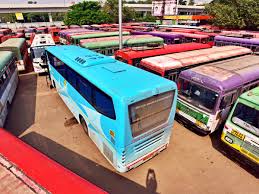An Overview of MSRTC and Its Recent Developments

Introduction
The Maharashtra State Road Transport Corporation (MSRTC) plays a crucial role in providing public transport services across Maharashtra. As one of the largest state-run bus services in India, MSRTC connects rural and urban areas, facilitating mobility for millions of passengers daily. Its significance is particularly pronounced in the context of enhancing connectivity, reducing traffic congestion, and contributing to the state’s economy.
Recent Developments in MSRTC
In recent months, MSRTC has undertaken several initiatives aimed at improving its services and operational efficiency. The corporation has introduced new bus services, upgraded its fleet with modern technologies, and enhanced passenger facilities at various terminals. Notably, the introduction of electric buses is a significant step towards sustainable transportation, aligning with the state’s green energy goals.
Introduction of Electric Buses
In May 2023, MSRTC rolled out its electric bus project, deploying a fleet of 100 electric buses across major routes in Pune and Mumbai. This initiative aims to reduce carbon emissions and operational costs while providing a cleaner mode of transport. The state government has expressed strong support for this project as part of a broader strategy to promote eco-friendly public transport solutions.
Enhanced Customer Experience
MSRTC has also focused on improving the passenger experience. Recently, the corporation launched an upgraded mobile application that allows users to book tickets online, track buses in real-time, and access various services easily. Additionally, passenger safety measures have been reinforced, including the installation of CCTV cameras in buses and terminals to ensure a secure travel environment for commuters.
Challenges Ahead
Despite these advancements, MSRTC continues to face challenges such as financial sustainability and competition from private transport operators. The decreasing ridership during the COVID-19 pandemic has placed additional financial stress on the corporation. To tackle these issues, MSRTC is exploring collaborations with local governments and initiating public awareness campaigns to encourage more commuters to utilize bus services.
Conclusion
The Maharashtra State Road Transport Corporation remains a vital component of the state’s transportation infrastructure. As it navigates the challenges of modernization and competition, the initiatives aimed at enhancing service delivery and sustainability are promising signs for its future. With ongoing efforts to introduce technology-driven solutions and eco-friendly transport options, MSRTC is poised to continue playing a pivotal role in shaping Maharashtra’s public transport landscape.









